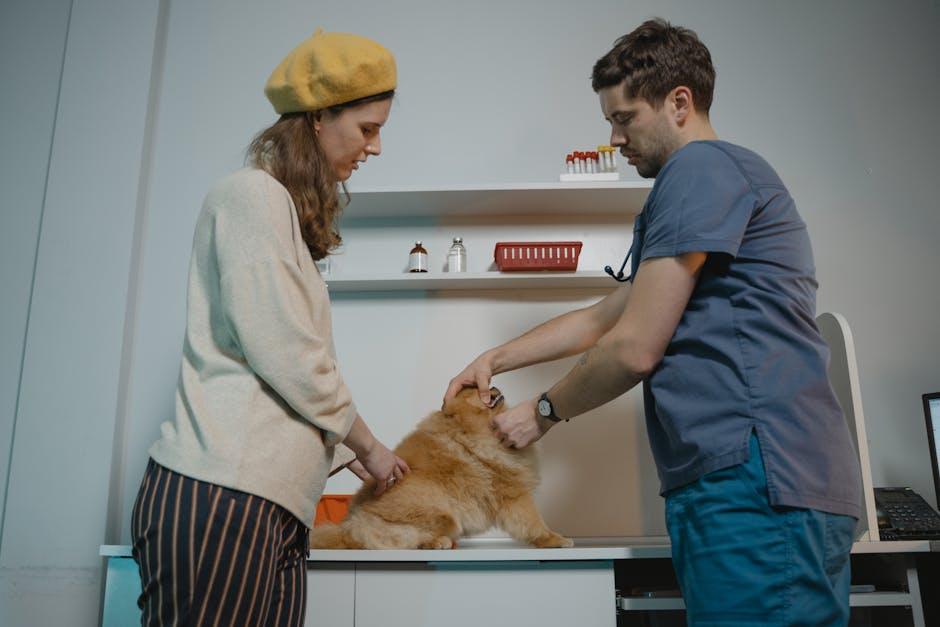Welcoming a puppy into your home is an exciting and joyful experience, filled with wagging tails, playful antics, and the promise of unconditional love. However, along with the cuddles and companionship comes the important responsibility of ensuring your furry friend stays healthy and happy. For first-time pet owners, navigating the world of puppy health can seem daunting, but fear not! This guide is here to offer you a warm and friendly hand as you embark on this delightful journey. From understanding nutritional needs to recognizing common health concerns, we’ll equip you with the essential knowledge to provide the best care for your new four-legged family member. Let’s embark on this rewarding adventure together, ensuring your puppy grows up healthy, strong, and ready to fill your home with endless joy.
Understanding Your Puppys Nutritional Needs
Feeding your puppy the right diet is crucial for their growth and overall health. Puppies have specific nutritional requirements that differ significantly from adult dogs. During the first year of life, they need a diet rich in protein, calcium, and essential fatty acids to support their rapid growth and development. Look for high-quality puppy food that lists a source of protein, such as chicken or beef, as the first ingredient. It’s also important to choose a formula designed specifically for puppies, as it will be balanced to meet their unique dietary needs.
- Protein: Supports muscle development and energy levels.
- Calcium: Essential for strong bones and teeth.
- Essential Fatty Acids: Promote healthy skin and coat.
- Vitamins and Minerals: Support immune system function and overall well-being.
It’s important to feed your puppy at regular intervals to maintain consistent energy levels throughout the day. Typically, puppies should be fed three to four times a day until they are about six months old. Always ensure they have access to fresh, clean water, and avoid giving them table scraps or foods that can be harmful, like chocolate or onions. By understanding and meeting your puppy’s nutritional needs, you’re setting the foundation for a healthy and happy life.

Creating a Safe and Stimulating Environment
Bringing a new puppy into your home is an exciting journey, but it’s essential to create a space that is both safe and engaging for your furry friend. Start by puppy-proofing your home. Secure loose wires and hide any toxic substances like cleaning supplies or plants that could be harmful if ingested. It’s also wise to invest in baby gates to restrict access to certain areas, ensuring your puppy explores safely.
Beyond safety, fostering a stimulating environment is key to your puppy’s development. Consider the following:
- Interactive toys: Keep their curious minds active with puzzle toys and chewables.
- Comfortable resting area: Provide a cozy bed or crate where they can retreat and relax.
- Variety of textures: Use different materials like rugs, tiles, and grass to enrich their sensory experiences.
- Social interaction: Encourage playtime with other dogs and humans to build their social skills.
By balancing safety with stimulation, you’ll set the foundation for a healthy and happy puppy.

Establishing a Consistent Healthcare Routine
Welcoming a new puppy into your home is an exciting journey filled with love and learning. To ensure your furry friend thrives, it’s essential to establish a healthcare routine that will set the foundation for a long and healthy life. Here are some key components to consider:
- Regular Veterinary Visits: Schedule your puppy’s first vet appointment as soon as possible. Regular check-ups help monitor their growth and catch any potential health issues early.
- Vaccination Schedule: Work with your veterinarian to establish a vaccination plan tailored to your puppy’s needs. Staying up-to-date on vaccinations is crucial for preventing diseases.
- Nutrition: Choose a high-quality puppy food that provides balanced nutrition. Consult with your vet to determine the best diet and portion sizes for your puppy’s breed and age.
- Parasite Prevention: Protect your puppy from fleas, ticks, and worms by using vet-recommended preventative treatments. Consistent protection is key to maintaining their health.
- Grooming: Regular grooming sessions help keep your puppy clean and comfortable. This includes brushing their coat, trimming nails, and cleaning ears.
By committing to these practices, you not only nurture your puppy’s physical well-being but also strengthen the bond between you and your new companion. Remember, consistency is the cornerstone of a thriving healthcare routine.

Recognizing and Responding to Common Puppy Ailments
As a new puppy parent, it’s essential to familiarize yourself with some of the common health issues your furry friend might encounter. Early recognition and proper response can make a significant difference in your puppy’s well-being. Here are a few ailments to keep an eye on:
- Diarrhea: This is a frequent issue in puppies and can be caused by dietary changes, stress, or infections. Ensure your puppy stays hydrated, and if symptoms persist beyond 24 hours, consult your veterinarian.
- Vomiting: Occasional vomiting can be normal, but repeated episodes might indicate a more serious problem. Remove food for a few hours, offer small amounts of water, and seek veterinary advice if it continues.
- Ear Infections: Look out for symptoms such as excessive scratching, redness, or an unusual odor. Cleaning your puppy’s ears regularly can help prevent infections, but if signs persist, a vet visit is necessary.
- Parvovirus: This highly contagious virus can be fatal if not treated promptly. Symptoms include severe vomiting, bloody diarrhea, and lethargy. Immediate veterinary care is crucial.
Responding promptly and appropriately to these signs can ensure your puppy grows into a healthy, happy dog. Always trust your instincts; if something seems off, don’t hesitate to reach out to your vet for guidance. Remember, prevention is the best medicine, so stay informed and proactive about your puppy’s health needs.
















